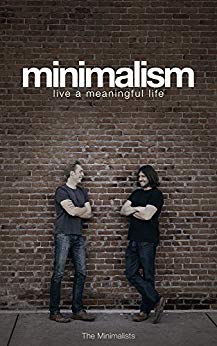

This article is an excerpt from the Shortform summary of "Minimalism" by Joshua Fields Millburn and Ryan Nicodemus. Shortform has the world's best summaries of books you should be reading.
Like this article? Sign up for a free trial here .
Want to live a meaningful life? Many of us do. But it’s not always clear what a meaningful life is, and how to achieve it.
Learn the steps to creating a meaningful live for yourself here.
Introduction to a Meaningful Life
A well-balanced meaningful life has 5 key components:
- Health: Eat a healthy diet (avoid processed foods and sugar), and exercise daily (choose exercises you enjoy so you’ll stick with them). To enjoy life, you need to maintain your best possible level of health (levels will vary among individuals).
- Relationships: Inventory your relationships — get rid of unproductive relationships and focus on the most important ones going forward.
- Passions: Reject your career identity and status, and discover and pursue your passions. Find a mission that aligns with your passions.
- Growth: Keep growing by making small changes daily that add up to substantial growth over time. Raise the bar each day so you don’t plateau.
- Contributing to others: A totally self-serving life is an empty life. When you contribute to society in ways that help others grow, you experience great satisfaction, and you’ll grow too.
While contributing to others in whatever way you choose is a positive experience overall, all positive experiences aren’t the same. There are two types:
- Positive experiences you enjoy. For some this may include playing a sport, spending time with a friend, helping a child ride a bike, opening a door for someone, etc. They are the most effortless and rewarding experiences.
- Positive experiences you dislike. They include things that are good for you but take more effort — for instance, exercising daily, eating vegetables, or taking on new challenges.
Often the reason people don’t participate in a charitable activity is that they identify it as something they dislike or that requires effort, even though it’s positive.
You have to fight the tendency to avoid these experiences if you are committed to finding lasting satisfaction.
The Key to a Meaningful Life
Positive experiences you dislike are the key to living a meaningful life. You need to find ways to transform the positive experiences you dislike into positive experiences you enjoy in order to change your life long term.
This strategy can be applied to every area of your life. Here are the key components of a meaningful life:
- Health: It’s not easy to exercise the first thing each morning. So focus on the fact that it will give you momentum and energy for the day ahead, which will serve you better than skipping it and getting an extra half hour of sleep.
- Relationship: An engaged conversation with your partner or close friend may be difficult if you’re tired; just watching TV is easier. But it becomes enjoyable when you focus on the satisfaction of addressing the other person’s needs and strengthening your relationship.
- Passion: Working on your passion takes effort, compared to just going out with friends, but you can make the work enjoyable by singing, listening to music, or just appreciating the quiet time away from your phone.
- Growth: It’s easier to keep doing the same things instead of new exercises, meeting new people, or doing something new. You can make improvement more enjoyable by giving yourself “points” or small rewards for stepping out of your comfort zone to grow. Ultimately, the activities will generate their own rewards.
- Contribution: It’s easier to stay home on a Saturday morning than to join a volunteer project. You could make volunteering the more enjoyable option by lining up less pleasant chores at home as your alternative. Or you could bring doughnuts and coffee to share with other volunteers.
There will always be something to tempt you away from doing the things that make your life more meaningful. You can avoid the temptation by turning experiences that seem tedious into something more fun and exciting.
For example, Joshua and Ryan worked on a Habitat for Humanity home building project in the rain. They made it more enjoyable by singing, competing, and doing impressions — they turned a positive activity they disliked into something fun.
Think of a positive activity that’s good for you but that you dislike. Now ask yourself how you could make the experience more enjoyable. Write down the answers you come up with.
Balancing the Five Values of a Meaningful Life
So which of the Five Values (health, relationships, passions, growth, contributing to others) is most important? It depends.
They’re all equally important, but the importance of each value for you changes over time in a meaningful life. There are periods in which one particular value takes precedence over another. For instance when your priority is building a new relationship or ending a relationship, the other values might take a back seat.
However, over time each person tends to give priority to two top values, usually the ones that come most naturally. For example, Joshua’s top two values are health and passions, while Ryan’s are relationships and growth.
However you need to maintain balance in your meaningful life. So pay attention to which values you are focusing on most — then adjust your focus to give attention to the other three. If you don’t you’ll feel dissatisfied and stressed.
For example, if you put all your energy into working out or running (your health) and too little into relationships, your current relationships will suffer and you’ll be lonely and depressed. This is not a good meaningful life
If you neglect growing in any area, you’ll feel stuck. Each day, ask yourself how you incorporated health, relationships, passion, growth, and contributing to others into your life. This will help you see how you’re spending your time.
Specifically, with each action you take, ask: “Which area of my life am I improving?” If it’s not improving one of the five areas, ask, “How could doing this improve one of the key areas of my life?” If you still can’t come up with a way to apply the activity to improving your life, reduce or eliminate it.
Most people’s days are filled with tedious tasks that take up time but don’t add value to their lives or contribute positively. Examples of time wasters include: Spending time on social media, shopping, playing video games, sleeping too late, or staying up too late. Some — like smoking, overeating, and gossip — do harm.
Write down the things you’ve done in the past week that haven’t contributed to the five areas, and think about how you can reduce or eliminate those activities.
Maximizing Results in a Meaningful Life
Some things you do positively influence more than one of the Five Values. These are some of the most productive activities in terms of payoff.
For example, exercising with someone else improves your health and relationship, helps you grow, and helps your partner (contribution).
What activities can you do that affect multiple values, allowing you to maximize your results?
Formula for Success in a Meaningful Life
How do you know if you’re living a meaningful life? There’s no definitive answer or checklist. No one can answer the question for you — only you know for sure.
Joshua and Ryan use what they call the Simple Success Formula. It can be applied to any of the Five Values (health, relationships, passion, growth, contributing to others):
Success equals happiness plus constant improvement.
You’re successful in any area if you’re happy with where you are and constantly improving. For example, you may not be in the best physical shape, but if you’re happy with your daily progress, then you’re successful. If you’re not happy but are constantly improving, you’re on the right track.
———End of Preview———

Like what you just read? Read the rest of the world's best summary of "Minimalism" at Shortform . Learn the book's critical concepts in 20 minutes or less .
Here's what you'll find in our full Minimalism summary :
- What Minimalism is, in complete detail
- How to simplify your life and get rid of things you don't need
- What's holding you back from your ideal career passion
- How to take care of your body and health, the simple way



![Stoicism: A Good Life Philosophy 8 Secrets to Living a Good Life [Charlie Munger]](https://www.shortform.com/blog/wp-content/uploads/2021/06/good-life-morning-coffee-270x270.jpg)



I agree with every factor that you have pointed out. Thank you for sharing your beautiful thoughts on this.